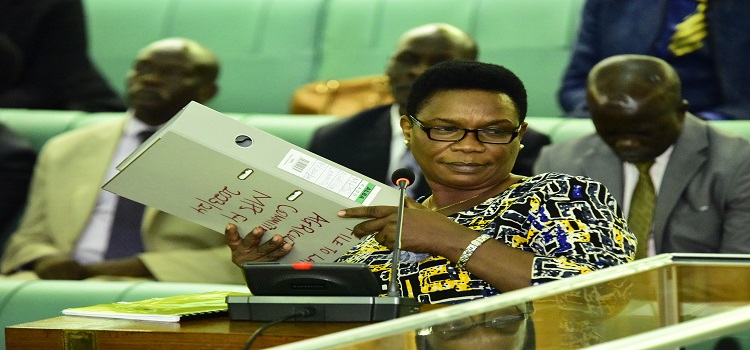The Ministry of Agriculture, Animal Industry and Fisheries (MAAIF) needs Shs660 billion to combat food security in the country.
Out of this, Shs400 billion will be for boosting production and establishing silos and food reserves.
These recommendations are contained in the report of the Committee on Agriculture, Animal Industry and Fisheries on the sector’s budgetary allocations for the Financial Year 2023/2024.
The report was presented by the Committee chairperson, Hon. Janet Okori-Moe on Tuesday, 18 April 2023 in a sitting of the House chaired by Deputy Speaker, Thomas Tayebwa.
Okorie Moe said the required funding is aimed at putting in place reliable mechanisms for handling food crises as opposed to emergency responses adopted by the government.
“As a committee, we observe with concern that there is no clear food security policy and strategy in the country. Government has adopted ad-hoc manners of handling hunger-related crises,” Okorie-Moe said.
She said that Shs110 billion is required to refund government agencies that were tasked to use their budgets to increase food production and animal feeds in response to the recent famine.
The beneficiary agencies are the National Agricultural Advisory Research Organization (NARO), National Agricultural Advisory Services (NAADS), UPDF and Uganda Prisons Service.
The committee recommended that Shs150 billion be provided to effect a cabinet directive to avail funds to large-scale farmers across the country already profiled by MAAIF, as a means of increasing food production.
Legislators commended the move to increase funding to NAADs whose services they said were commendable.
“Re-allocation of money to NAADs is welcome because we see what NAADS was doing before. I wish we gave them even more such that the food security is done with once and for all,” Hon. Santa Alum (UPC, Oyam Woman MP) said.
Apac Municipality MP, Hon. Patrick Ocan asked for increased funding for post-harvest handling and storage facilities saying Uganda has a history where its products are rejected in the neighbouring countries due to poor quality.
“We must invest massively in post-harvest handling and increasing processing capacities. If you remember, there is a list of our products which were rejected, some due to aflatoxins,” said Ocan.
The Minister of State for Animal Industry, Hon. Bright Rwamirama said the ministry is struggling to preserve indigenous crop species that are drought-resistant and have indigenous animal genes.
“There is a deliberate effort at NARO to preserve indigenous genes and crop species; we host a regional gene centre for 21 countries but we have not done well, both in conservation and research,” said Rwamirama.











